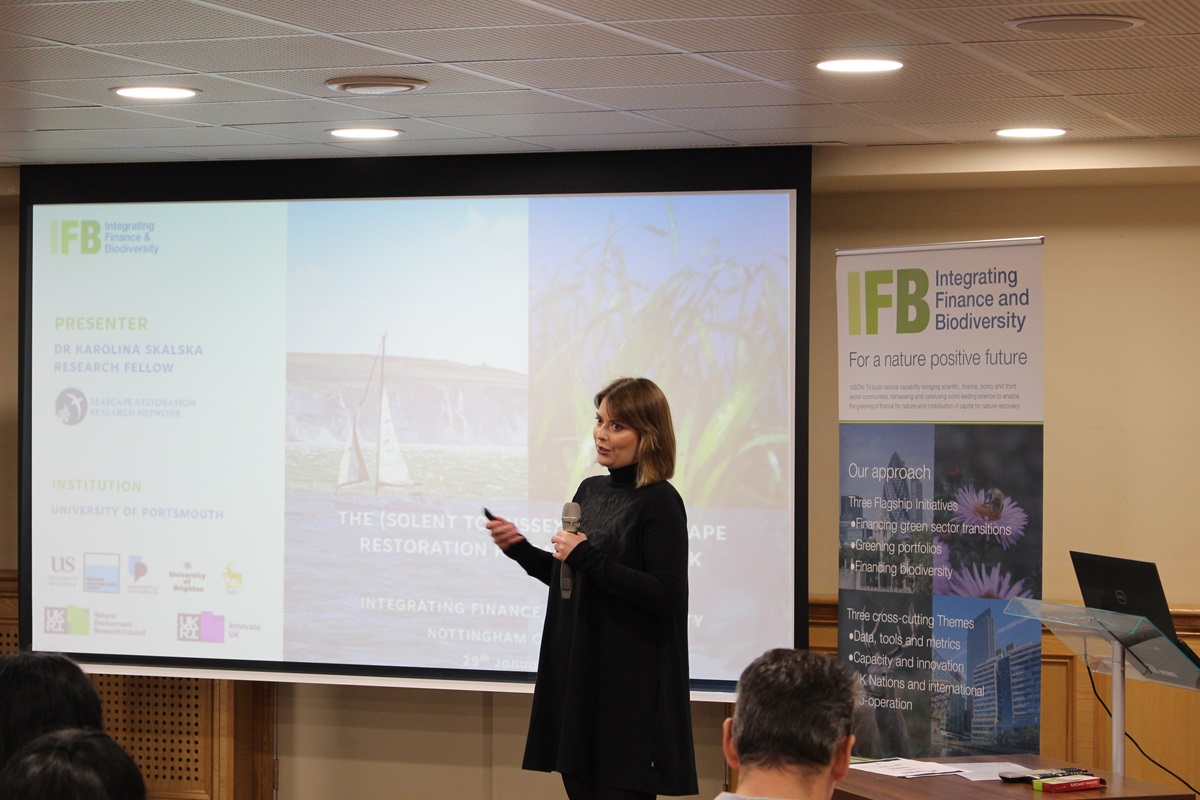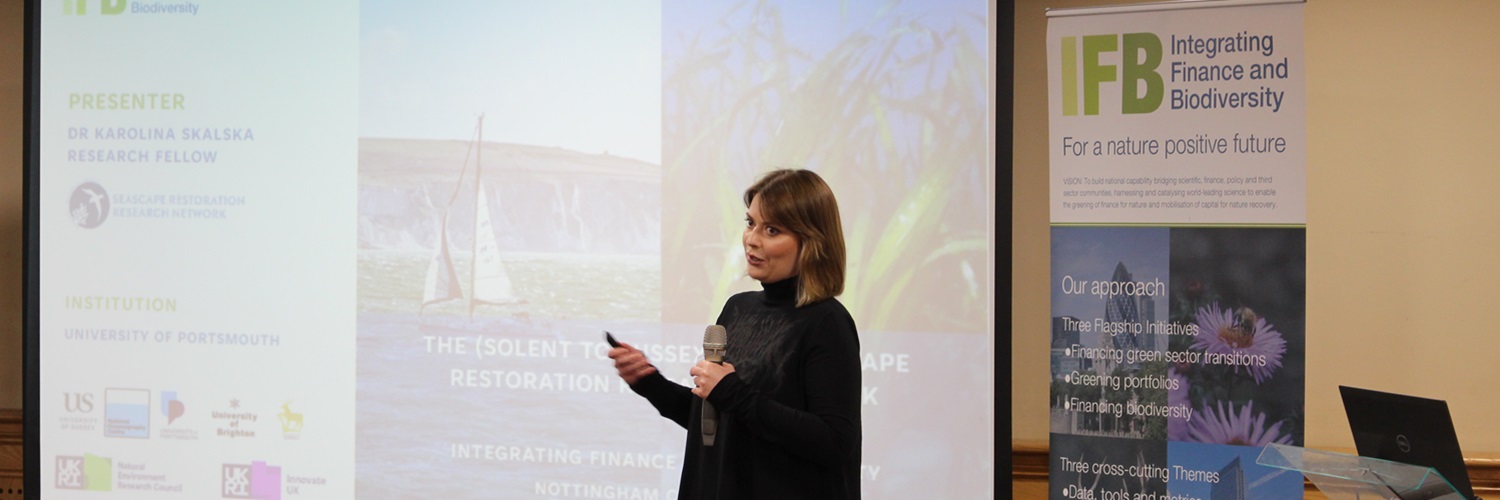The joint Integrating Finance and Biodiversity and Economics of Biodiversity Conference 2024 was held in Nottingham.
The first day included presentations from all 12 IFB Phase I pilot projects. In the third of a four-part series, we provide overviews of presentations seven to nine. Presentations 1 - 3, Presentations 4 - 6, and Presentations 10 - 12 are also available.

Dr Karolina Skalska presenting the (Solent to Sussex Bay) Seascape Restoration Research Network
Financial Rewards for Improved Biodiversity Outcomes (FRIBO) – Prof. Paul Brereton, Queen’s University Belfast
Paul described the planned roadmap that will identify key activities and timelines that need to be undertaken in order for stakeholders to implement biodiversity-focused “pay (rewards) for performance” financial instrument schemes.
Paul also outlined the difficulties with engaging both the financial sector and natural sciences at the same time, their different vocabularies, different aims, and different requirements and metrics for success.
In collaboration with the agri-food sector, investors and civil society, Paul expressed hope that work in the near-future will inform the development of novel financial tools and policies. They will be co-designed with stakeholders within real-world sites in England and Northern Ireland to assess their impact and any unintended consequences.
Science-based markets for nature recovery - Prof. Richard Pywell, UK Centre for Ecology & Hydrology
Richard described the stakeholder requirements for high-integrity data products, models and tools to enable investment in nature recovery. He gave examples of how user-requirements were defined, the robust and accurate approaches to verification, and application to real-world cases studies.
Richard told of how more work is needed to realise the full potential of new biodiversity data, models and tools. In particular the challenges such as: Feedback that suggests biodiversity has variable importance to different companies; the barriers to engaging with large finance institutions; the lack of regulatory framework; the voluntary biodiversity market dynamic; and the bespoke needs of each stakeholder.
Looking ahead, Richard outlined plans to develop and test new biodiversity tools and metrics responsive to nature-positive investments.
The (Solent to Sussex Bay) Seascape Restoration Research Network - Dr Karolina Skalska, University of Portsmouth
Karolina told delegates how the project had built the network from 16 to 84 members, and had delivered local multi-stakeholder workshops on Blue Finance, and national workshops in partnership with Finance Earth and Pollination.
Karolina gave examples of the many existing initiatives across the Solent and Susses Bay and how this brings challenges. Namely, the need for careful coordination and clarity of purpose, and the importance of avoiding stakeholder fatigue. This latter challenge is due to the high demand for stakeholder time.
In the coming months and years, the project will foster research excellence across the region, and continue to engage with national initiatives such as the UK Blue Carbon Evidence Partnership, and the broader IFB network. This will be in parallel with making research policy-relevant and further engaging with policymakers through holding a Parliamentary reception and publishing a policy brief. The Network will also actively engage with the Blue Natural Capital lab (Sussex Bay).
